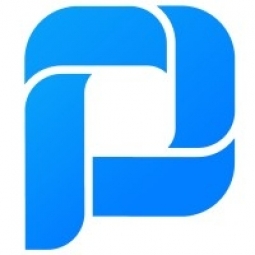Customer Company Size
Large Corporate
Region
- America
Country
- Nicaragua
- Panama
- Costa Rica
- El Salvador
- Guatemala
Product
- ProcessMaker
- DocMe DMS
Tech Stack
- Low-code BPM
- Workflow Software
Implementation Scale
- Enterprise-wide Deployment
Impact Metrics
- Cost Savings
- Productivity Improvements
- Customer Satisfaction
Technology Category
- Application Infrastructure & Middleware - Data Exchange & Integration
- Functional Applications - Enterprise Resource Planning Systems (ERP)
Applicable Industries
- Telecommunications
Applicable Functions
- Business Operation
- Sales & Marketing
Use Cases
- Process Control & Optimization
- Predictive Maintenance
- Real-Time Location System (RTLS)
Services
- Cloud Planning, Design & Implementation Services
- Software Design & Engineering Services
About The Customer
Telefónica operates in 16 countries and has a presence in 24, with over 120,000 employees. Between January and December 2018 Telefónica had consolidated revenues of 48,693 million euros and more than 356 million total accesses, 270.8 million mobile phones accesses, 22 million Internet and data accesses, and 8 million pay TV accesses. Telefónica is a 100% listed company with more than 1.3 million shareholders, traded in several of the most important stock markets around the world. Telefónica CAM is the mobile market leader in Panama and Nicaragua, and the second largest mobile provider in Costa Rica, with nearly 8.7 million total customers.
The Challenge
Before the implementation of ProcessMaker, Telefónica CAM was manually re-entering data between Microsoft Excel and its legacy software. This manual input left room for human error, delays in service, and expensive labor costs. For instance, Telefónica Guatemala was manually processing over 100 new business account subscriptions every day. Each of these produced 20 new accounts that needed to be created. All of this was completed manually, meaning that activating new accounts often took more than three days to complete. Telefónica realized both money and time was lost during the account opening process on a massive scale. At the time, Telefónica CAM was unable to determine the cost and ROI with its new subscriptions. It also had limited visibility into its organization’s workflows and the efficiency of its processes.
The Solution
In 2013, Telefónica began using ProcessMaker first in Guatemala, then expanded to Costa Rica. Its financial workflows now work together seamlessly between multiple systems to coordinate expenses and payments in one centralized location. Telefónica also streamlines the activities and approvals associated with each payment process. Its processes and reporting are now automated using the ProcessMaker platform. The Telefónica CAM team benefited from the agility of the platform, deploying new processes and creating integrations between systems and processes to meet Telefónica’s ever-evolving needs. Another benefit included automating the activation process for mobile and cloud services, Internet, and landline phones. When a client signs up for a service, their information is routed through an approval process and then directly to the operator. ProcessMaker also integrates with the division’s document management service, DocMe to automate all contracts from start to finish. ProcessMaker creates the form employees complete and electronically sign, then ProcessMaker logs the contract in DocMe. Through ProcessMaker, high-level decisions can be made with precise and accurate data in real time. The system ensures accounting and financial data are based in accurate transaction information through automation.
Operational Impact
Quantitative Benefit

Case Study missing?
Start adding your own!
Register with your work email and create a new case study profile for your business.
Related Case Studies.

Case Study
Vodafone Hosted On AWS
Vodafone found that traffic for the applications peak during the four-month period when the international cricket season is at its height in Australia. During the 2011/2012 cricket season, 700,000 consumers downloaded the Cricket Live Australia application. Vodafone needed to be able to meet customer demand, but didn’t want to invest in additional resources that would be underutilized during cricket’s off-season.

Case Study
SKT, Construction of Smart Office Environment
SK T-Tower is the headquarters of SK Telecom. Inside the building, different types of mobile devices, such as laptops, smartphones and tablets, are in use, and with the increase in WLAN traffic and the use of quality multimedia data, the volume of wireless data sees an explosive growth. Users want limitless Internet access in various places in addition to designated areas.











